Wiccan supplies encompass a diverse array of tools utilized within Wicca, a modern pagan and witchcraft religion that has experienced a surge in popularity in recent years. This resurgence can be attributed to the growing number of individuals seeking to reestablish a profound connection with nature, unlock their inner potential, and venture into spiritual realms beyond conventional religious paradigms. Wicca’s core essence lies in its profound reverence for the natural world, and practitioners frequently employ an assortment of tools and supplies to augment their spiritual practices and rituals. In this article, we will embark on an exploration of the captivating realm of Wiccan supplies, delving into their symbolism and purpose within the Wiccan tradition.
Origins of Wiccan Supplies in Modern Witchcraft
The use of Wiccan supplies is a relatively recent development within the broader history of witchcraft and pagan practices. Wicca as a modern, organized religious movement emerged in the mid-20th century, particularly during the mid-20th century and into the 1950s and 1960s.
Gerald Gardner is often credited with founding modern Wicca, and he played a significant role in popularizing the use of tools and supplies in Wiccan rituals and practices. His books, such as “Witchcraft Today” (1954) and “The Meaning of Witchcraft” (1959), outlined various tools and their purposes in Wiccan ceremonies. Gardner’s influence helped establish the use of items like the athame, wand, chalice, and pentacle, among others, as essential components of Wiccan rituals.
However, it’s important to note that the symbolism and use of these tools draw from older traditions, folklore, and occult practices. Many of these tools have roots in ancient rituals and magical practices, but their formal organization into a distinct system of Wicca is a more recent development.
So, while some of the symbolism and practices associated with Wiccan supplies have ancient origins, their organized use within modern Wicca began in the mid-20th century.
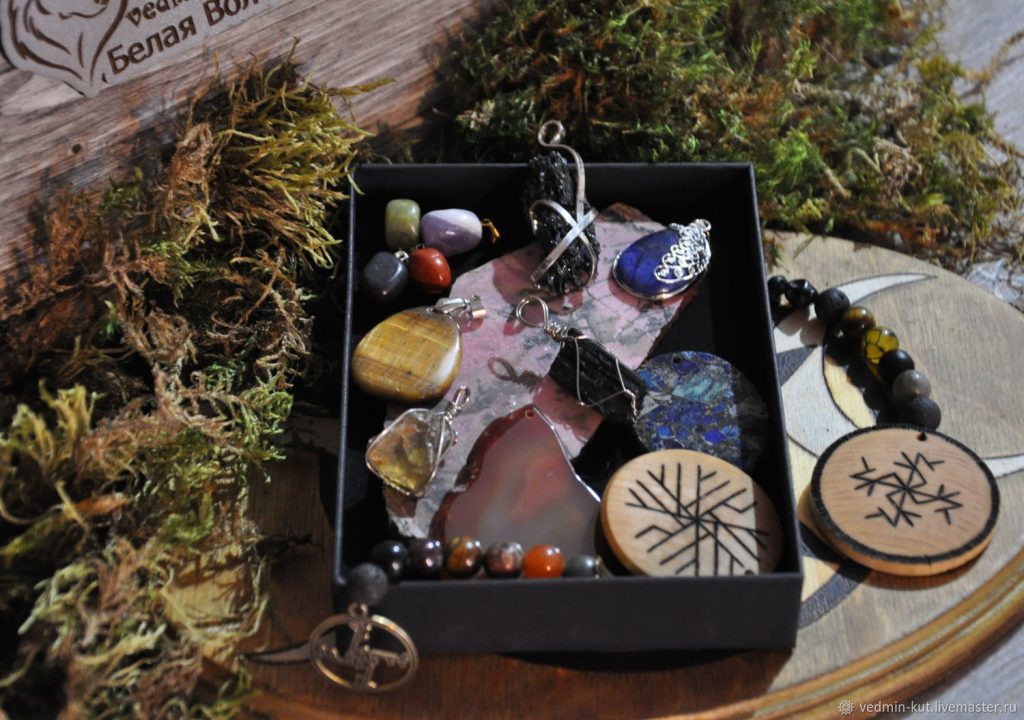

The Importance of Wiccan Supplies
The importance of Wiccan supplies in modern witchcraft and the Wiccan tradition is multifaceted, encompassing both practical and symbolic aspects. Here’s a deeper look at why these supplies hold significance:
- Focus and Intention: Wiccan supplies serve as physical anchors for the practitioner’s focus and intention. When a Wiccan holds an athame or a wand, for example, they are not just holding an object; they are channeling their energy and intention through it. These tools help practitioners concentrate their thoughts and energy on their magical workings, enhancing the effectiveness of their rituals and spells.
- Sacred Space Creation: Many Wiccans use their supplies to create and define sacred space. Tools like the athame or wand are often used to cast circles, which act as protective barriers between the mundane world and the sacred realm. Within this sacred space, magic and spiritual work can be conducted safely and with intention.
- Symbolism and Connection: Each Wiccan supply carries specific symbolism and correspondences that connect the practitioner to the natural world, elements, deities, and energies. For example, the chalice represents the element of water and the feminine aspect of the divine, while the pentacle symbolizes the element of earth. These symbols provide a framework for understanding and working with spiritual forces.
- Ritual and Tradition: Wicca places a strong emphasis on ritual and tradition. Wiccan supplies have become integral to these rituals, passed down through generations and often personalized by individual practitioners. This continuity of tradition and the use of these tools connect Wiccans to their spiritual ancestry and help maintain a sense of community and continuity.
- Psychological and Emotional Impact: The act of handling and using Wiccan supplies can have a psychological and emotional impact on the practitioner. The tactile experience of holding and using these tools can deepen a sense of spiritual connection and mindfulness during rituals, helping practitioners enter altered states of consciousness more easily.
- Energy Manipulation: Wiccan supplies aid in the manipulation of energy. Tools like crystals, candles, and herbs are chosen for their specific energetic properties and are used to enhance the practitioner’s ability to direct and focus energy for healing, divination, or spellwork.
- Personalization and Empowerment: Wiccan supplies are often chosen or crafted by the practitioner themselves. This personalization imbues the tools with the practitioner’s energy and intention, making them more potent in their magical workings. Crafting or selecting one’s tools is a process of self-discovery and empowerment.
In summary, the importance of Wiccan supplies goes beyond mere physical objects. They are essential instruments that enable Wiccans to tap into their inner power, connect with the spiritual realm, and work magic effectively. These tools are not only practical aids but also symbolic representations of the practitioner’s spiritual journey and connection to the natural world.
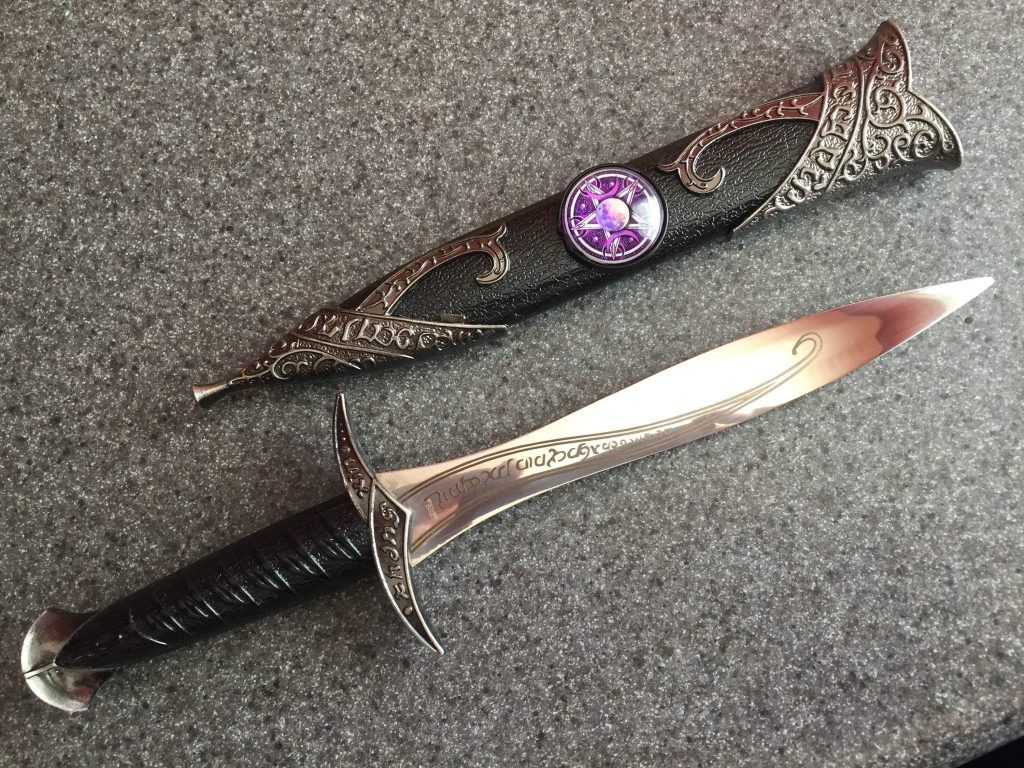

Read More: The Power of Prayer Against Witchcraft
Types of Wiccan Supplies
A. Altar Wiccan Supplies
These are the tools and items placed on or around the altar specifically for ritual and magical purposes. They are used during Wiccan ceremonies to create a sacred and focused space, invoke deities, cast circles, and perform various ritual actions. Common altar tools include the athame, wand, chalice, pentacle, candles, incense, besom, and crystals. Here are the 10 top tools everyone must have:
- Athame: This ritual dagger is commonly used in casting circles, directing energy, and invoking the divine. It represents the element of fire and is associated with the god aspect of the divine.
- Wand: Typically made of wood, crystal, or metal, wands are used for channeling energy, casting spells, and invoking deities. They represent the element of air and are often linked to the goddess aspect of the divine.
- Chalice: A symbol of water, the chalice is used to hold liquids like water or wine during rituals. It symbolizes the womb of the goddess and is associated with the feminine divine.
- Pentacle: A flat, disc-shaped object with a pentagram inscribed on it, the pentacle represents earth. It is used for consecrating and purifying objects, among other purposes.
- Candles: Candles, representing fire, are integral to creating a sacred atmosphere, setting intentions, and invoking deities. Different candle colors have various symbolic meanings.
- Incense: Used to purify the space and carry prayers to the divine, incense represents the element of air. The smoke is believed to connect the physical and spiritual realms.
- Boline: This white-handled knife with a curved blade is practical for cutting herbs, cords, and materials used in rituals. It’s often associated with the element of earth and the goddess.
- Besom: A broomstick used for sweeping and purifying the ritual area, the besom also symbolizes the removal of negative energies and represents air.
- Crystals: These are placed on the altar for their energy-aligning properties and are chosen based on their correspondences with specific intentions and purposes.
- Book of Shadows: While not a physical tool in the traditional sense, the Book of Shadows is often kept on the altar and serves as a personal journal or grimoire where Wiccans record rituals, spells, correspondences, and other magical knowledge.
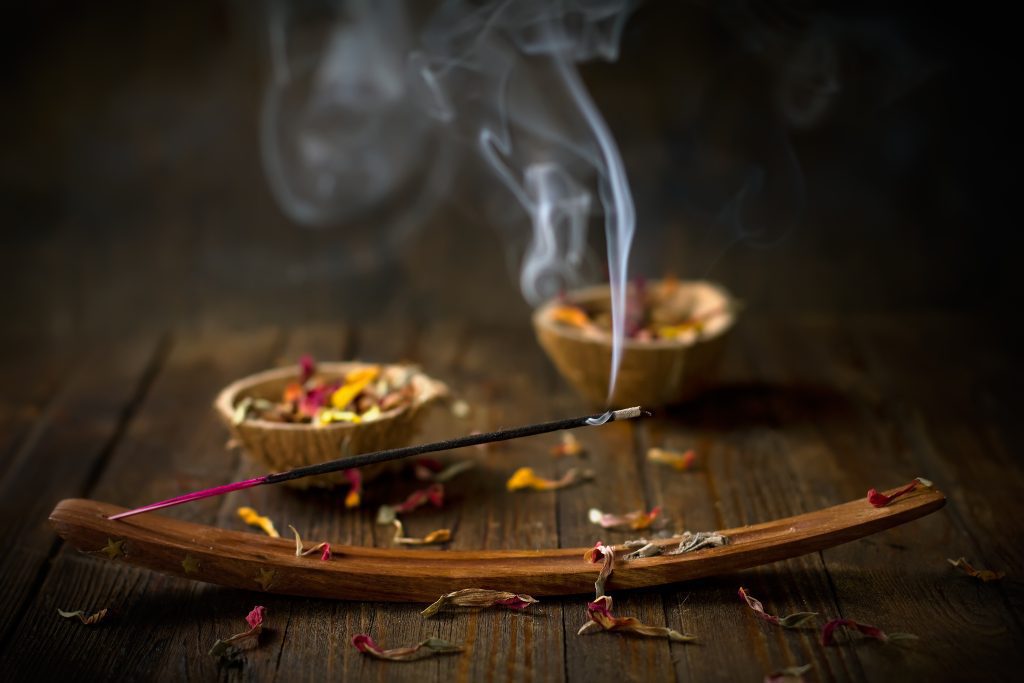

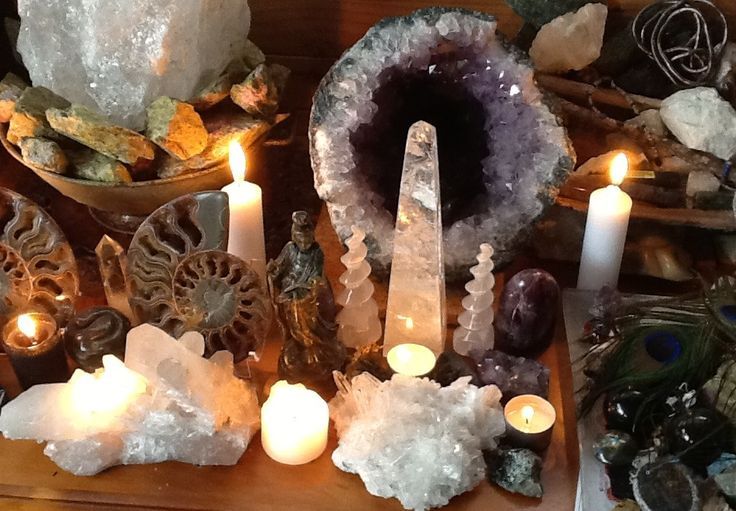

B. Non-Altar Wiccan Supplies
Non-altar tools are items used in various aspects of Wiccan practice but are not necessarily placed on or directly associated with the altar during rituals. These tools serve more general purposes in spellwork, divination, meditation, and everyday life. Examples of non-altar tools include herbs, oils, cauldrons, robes, books (such as the Book of Shadows), tarot cards, runes, and pendulums. These tools are versatile and may be used in a variety of ways depending on the practitioner’s needs and preferences.
- Herbs: Herbs are used in spellwork, incense blends, and potions for their magical and healing properties. Each herb has specific correspondences.
- Oils: Essential oils and herbal oils are used in anointing candles, tools, and the practitioner to enhance magical workings and rituals.
- Cauldron: Often used for burning herbs or incense, the cauldron is a versatile tool that represents the element of water and is associated with transformation.
- Robes: Ritual robes are worn during ceremonies to create a sense of sacredness and separation from the mundane world.
- Tarot Cards and Runes: These divination tools are used for gaining insights, guidance, and self-reflection.
- Pendulums: Pendulums are used in divination and dowsing to answer questions or locate objects.
- Divination Tools: These may include scrying mirrors, crystal balls, or other items used for seeing visions or gaining insights into the future.
- Magical Jewelry: Rings, necklaces, and other jewelry may be worn with specific magical intentions, such as protection or attracting certain energies.
- Altar Cloths: Cloths or coverings for the altar can be chosen to match the colors or symbols representing the specific intent of a ritual.
- Mortar and Pestle: Used for grinding herbs and other materials for spells and potions.
While altar tools are central to Wiccan rituals and often have a specific place on the altar, non-altar tools are used in a broader range of magical and spiritual activities. Both categories of tools are important in Wiccan practice, as they help Wiccans connect with the divine, harness energy, and work magic effectively, whether within the sacred space of the altar or in other aspects of their spiritual journey.
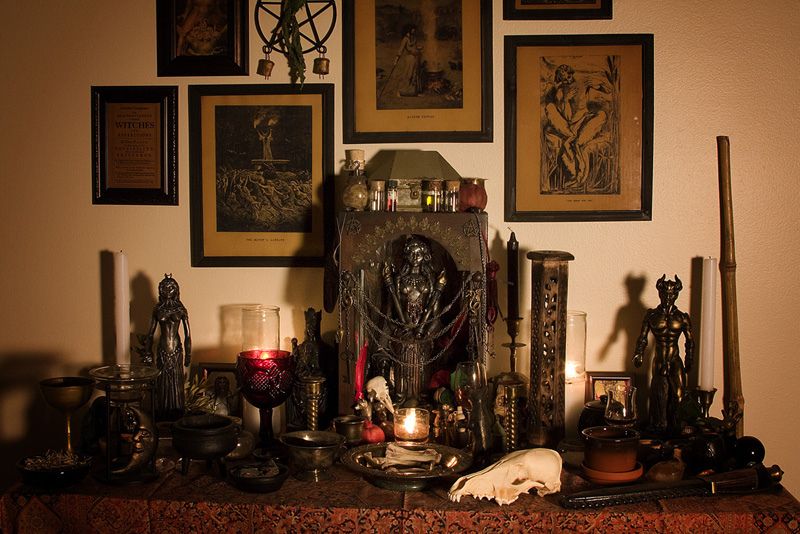

How to Choose the Right Wiccan Supplies
Choosing the right Wiccan supplies is a personal and meaningful process that involves consideration of your specific intentions, traditions, preferences, and spiritual path. Here are some steps to help you choose the right Wiccan supplies for your practice:
- Clarify Your Intentions:
- Determine the purpose of your Wiccan supplies. Are you looking to perform specific rituals, spells, or divination? Knowing your intentions will guide your choices.
- Research Correspondences:
- Research the symbolic and metaphysical correspondences associated with various Wiccan supplies. Different tools, herbs, colors, and wiccan crystals have specific meanings and properties. Choose supplies that align with your intended goals. For example, if you’re working on love spells, you might choose rose quartz dark crystals and pink candles.
- Connect with Your Tradition:
- If you follow a specific Wiccan tradition or path, learn about the tools and supplies traditionally used within that tradition. While there’s room for personalization, adhering to tradition can provide a deeper connection to your spiritual practice.
- Personal Connection:
- Pay attention to your personal connection with certain tools. Some items may resonate with you on a deeper level, while others may not feel right. Trust your intuition when selecting supplies.
- Consider the Material:
- Some Wiccans prefer tools made from specific materials. For example, wood and natural materials may be favored for wands, while silver or glass may be preferred for chalices. Choose materials that resonate with you and your practice.
- Craft or Purchase:
- Decide whether you want to purchase pre-made Wiccan supplies or craft them yourself. Crafting your tools can deepen your connection to them, but it’s not necessary if you prefer convenience.
- Budget and Availability:
- Consider your budget and the availability of the supplies you want. Some crystals or herbs may be more expensive or harder to find than others. Be mindful of what is accessible to you.
- Quality Matters:
- Invest in quality supplies when possible. Well-crafted tools can last a long time and may carry a stronger energy than mass-produced items.
- Personalize Your Tools:
- Once you have your basic supplies, consider personalizing them. You can carve symbols or words onto your tools, anoint them with oils, or charge them with your energy to make them uniquely yours.
- Start Small:
- If you’re new to Wicca or witchcraft, it’s okay to start with just a few essential supplies and gradually build your collection as you gain experience and knowledge.
- Ethical Considerations:
- Be mindful of the ethical sourcing of your supplies, especially when it comes to crystals, herbs, and other natural materials. Choose suppliers who practice sustainability and ethical harvesting.
- Seek Guidance:
- Don’t hesitate to seek guidance from more experienced practitioners, mentors, or teachers in the Wiccan community. They can offer insights and recommendations based on their own experiences.
Remember that your spiritual journey is unique, and there is no one-size-fits-all approach to choosing Wiccan supplies. Take your time to explore and experiment with different tools, and don’t be afraid to adapt your choices as your practice evolves. The most important aspect is the personal connection and intention you infuse into your chosen Wiccan supplies.
Risks to Consider Before Using Wiccan Supplies
Before using Wiccan supplies or engaging in any form of spiritual or magical practice, it’s important to be aware of potential risks and exercise caution. Here are some risks to consider:
- Ethical and Moral Considerations: Wicca and other magical practices often involve working with energies and intentions. It’s crucial to carefully consider the ethical and moral implications of your actions. The Wiccan Rede, for example, emphasizes the importance of harming none. Be mindful of the consequences of your spells and rituals.
- Cultural Appropriation: Be cautious about appropriating symbols, practices, or traditions from cultures that are not your own. It’s essential to show respect and cultural sensitivity when incorporating elements from other belief systems into your practice.
- Psychological Impact: Engaging in magical practices can sometimes have a psychological impact. Be aware of the potential for heightened emotions, altered states of consciousness, or unexpected psychological experiences. If you have a history of mental health issues, consult a mental health professional before engaging in intense magical work.
- Dependency: Some individuals may become overly dependent on magical practices or tools for solving life’s problems. Remember that while Wiccan supplies can be helpful, they should not replace practical, real-world solutions to challenges.
- Spiritual Confusion: Engaging in various magical practices from different traditions can lead to spiritual confusion. Ensure that you have a clear understanding of the systems you’re working with and avoid mixing incompatible practices.
- Negative Energy: When working with negative energies or banishing spells, there is a risk of attracting negative energies into your life. Protective measures and grounding techniques are essential to minimize this risk.
- Inaccurate Information: Be cautious of misinformation or misleading practices found in books, online sources, or from unverified sources. Verify the accuracy of the information you use in your practice.
- Physical Safety: Some magical rituals may involve the use of fire, sharp objects, or other potentially hazardous materials. Always prioritize physical safety when performing rituals, and have safety measures in place.
- Privacy and Secrecy: Be mindful of your privacy when engaging in magical practices. Not everyone understands or accepts these practices, and it’s important to protect your personal information and beliefs.
- Balancing Spiritual and Mundane Life: Striking a balance between your spiritual or magical practice and your everyday life can be challenging. Overemphasis on one aspect to the detriment of the other can lead to imbalance.
- Dissatisfaction and Disappointment: Magic and spellwork do not guarantee specific outcomes. Be prepared for the possibility of disappointment or unmet expectations. Understand that magic works in mysterious ways, and results may not always be immediate or apparent.
- Spiritual Scams: Beware of individuals or groups claiming to offer magical services or supplies for a fee without delivering promised results. Exercise discernment and skepticism when dealing with such offers.
To mitigate these risks, it’s advisable to thoroughly research and educate yourself about Wicca and magical practices, seek guidance from experienced practitioners or mentors, and approach your spiritual journey with humility and respect for both the craft and the world around you. Remember that personal responsibility and ethical conduct are integral to a safe and fulfilling Wiccan or magical practice.
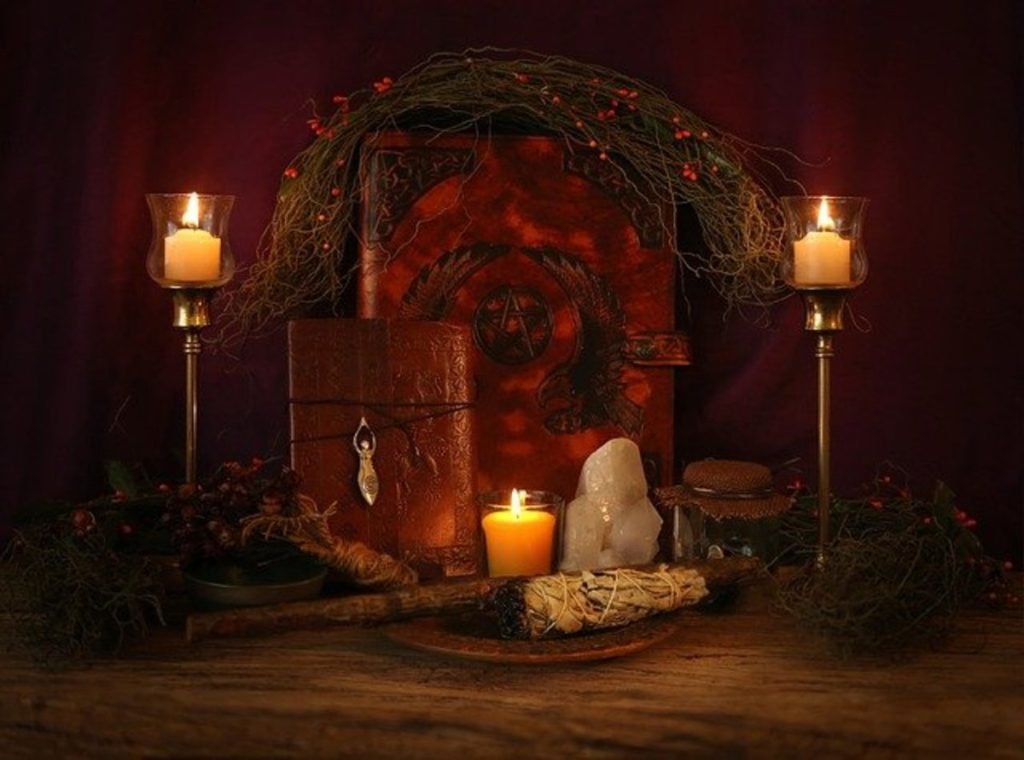

Conclusion
Wiccan supplies are not just objects; they are the tools that empower Wiccans to connect with the natural world, harness their inner energy, and perform meaningful rituals. Each tool has its unique symbolism and purpose, contributing to the rich tapestry of Wiccan practice. Whether you are an experienced practitioner or a curious seeker, exploring the world of Wiccan supplies can deepen your understanding of this mystical and nature-centered tradition.

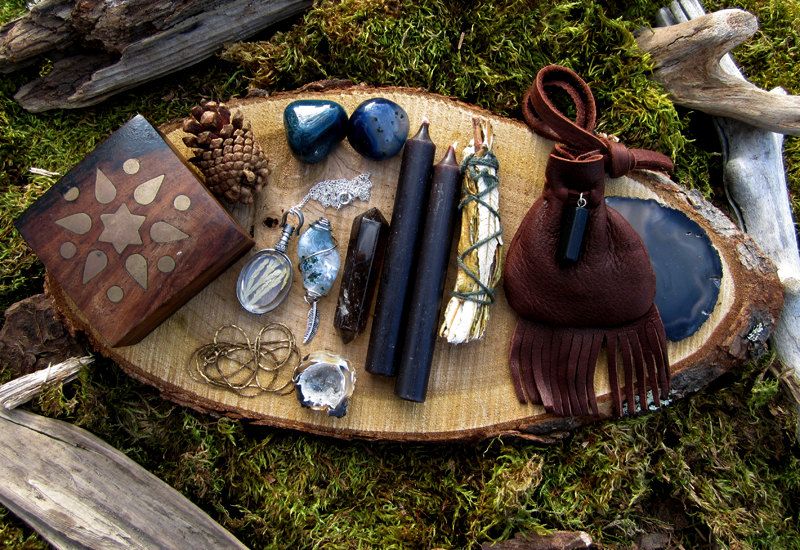
Pingback: A Guide to Wiccan Supplies : 10 Secret Spiritua...